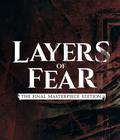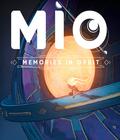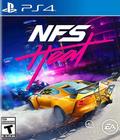After 25 years filled with almost as many releases, the Need for Speed series has been through many highs and lows but has remained firmly dedicated to arcade racing entertainment. Its current developer, Ghost Games, didn't have the best run with a mediocre reboot in 2015 and an even more problematic follow-up with NFS Payback just two years ago. Naturally, that has dampened expectations for the latest installment in the series, Need for Speed Heat. The short time between the game's announcement and release has combined with a relatively toned-down marketing effort to make this entry feel like it could be a last-ditch attempt to get the franchise back on track. While Heat isn't a masterpiece that pushes innovative concepts, it feels like a return to form in many ways.
The concept of Need for Speed was never complex. Take part in high-speed races, get new cars, deck them out, and carry on. Heat is in line with that same premise, but it splits things up differently. The game still features a tacked-on story, much like prior entries, but it doesn't push it as much. We are a nameless racing hopeful who's banding together with two siblings — one racer and one mechanic — to make a name in the local racing scene. There is some background and conflict, and corrupt cops try to stifle the racing scene. The tale provides some structure in the early game, but it's forgettable. The game only lasts about 10 hours, which doesn't overstay its welcome.
You're likely more interested in getting on the road to hear tires screech and see smoke rise while turning corners. If so, you've come to the right place. The open world we're racing in is called Palm City, and it offers plenty of opportunity to race. It's a representation of Miami and some Florida landmarks crammed into one map. It's not incredibly huge, but it offers enough space to shoot down a few highways and see diverse scenery: beaches, countryside, skyscrapers and swamps. It's a solid open world that serves its purpose well.
The game is split into two complementary parts: day and night. There's no dynamic change in the time of day; it's either one or the other. While that takes away the chance of riding into the sunset with your trusty vehicle, it introduces other gameplay systems. Palm City hosts competitive racing action in the daytime, and it's the playground for some fierce illegal street racing at night. Participation in both is required to progress.
Reminiscent of NFS Pro Street, daytime racing takes place on fenced-off tracks without any traffic or interference. This is where the quality of the vehicle and your racing abilities need to shine the brightest. Winning races awards us with money, which is used to buy new parts or new vehicles.
At night, Palm City is a different world where we can participate in street races. There is full exposure to street traffic and, most importantly, the police. The more activities we are involved in at night, the more police interest we get. This heightened attention is represented in the "heat" we receive, which fuels a heat meter. There are five heat levels, and cops become increasingly relentless in hunting you down. Basic patrol cars are replaced with more intense vehicles like rhinos, and it becomes increasingly difficult to evade the police. The cop chases may not only occur outside of races but may also organically crop up during races, so they're a threat at any time. If we complete street races at night, we earn "rep," which increases our rep level. These levels unlock new parts and vehicles, and the twist is that increased heat levels are a multiplier for our rep, so the longer we're on the road, the more rep we can earn. If we're destroyed or arrested, we'll lose most of our rep and a chunk of money.
It's the most interesting concept that NFS Heat offers, and it creates an exciting risk/reward cycle. In the early game, it can be incredibly tough to evade cops at a heat level of three or higher, so there's always a tangible threat of losing all our hard-earned rep if we stay outside of the garage for too long. It can be devastating to lose thousands of earned rep points after some difficult races. This concept doesn't work flawlessly, though. It can take quite a while until we get vehicles and upgrade parts that make it feasible to evade the police at higher heat levels. Eventually, it becomes less of an issue with better cars, but it takes a lot of grinding to get there — more than most may be willing to undertake. As a result, the initial hours of NFS Heat are very slow, and the actual fun only starts later on, when you have a wider variety of vehicles and upgrades that make it fun to blast through the city. These balance issues are present in other parts of the experience, such as the AI.
Instead of putting vehicles into distinct classes, every vehicle can technically be used in any race. While that's appreciated in terms of variety and the ability to tune certain cars for different events (e.g., drifting), this means that cars and races are marked with a three-digit number indicating the overall car rating. Starting out, our cars are close to 100, with the upper limit being a tad over 400. Every race has a recommended rating, which is often deceiving. If we enter a 220 race with a 230-rated car, there is the random chance of the game dropping a vastly superior car into the race. Either we'll dominate every contender in the race, or we'll dominate all but one car that comfortably sits at the very top, with little chance of catching up unless there's a serious crash. It's frustrating, and I hope this can be fixed in the future, as it takes away a lot of the thrill of tightly battling for the top spot in a race.
Apart from AI and progress, the other odd balance issue is the one between day and night. The professional racing segments without police interference can feel very underwhelming when compared to the vastly more interesting night races and police chases. In most instances, the need to swap between both can provide some variety, but there isn't enough during the day to entertain you, aside from the open world and the races. If given the choice, I'd always opt to go out at night and race in the neon-lit atmosphere of Palm City rather than during the less impressive daytime.
The racing feels surprisingly great. Don't expect a racing sim, but as far as arcade racers go, NFS Heat does a lot of things right if you're a fan of over-the-top drifting physics. It's fast, it's loose, and it is quite satisfying when drifting around a 180-degree turn while you shoot past the competition and grab a nitrous boost to explode out of the corner. Within that forgiving arcade control scheme, cars still control differently based on the model and tuning, so it's diverse enough to feel and see the subtle differences. Since the game makes it easy to swap cars for individual races, having different cars for different race types is feasible and recommended. At the best of times, NFS Heat evokes nostalgic NFS Underground feelings mixed with Most Wanted's police chases.
It creates similar addictive situations, such as saving your money to buy beautiful cars and tune them until they're loud neon monstrosities. Additional tuning opportunities include customizing the car exhaust sound and full engine swaps. It's enough to lose yourself in, and a stand-alone mobile app even lets players design cars and push them to the game. With a car roster of over 100 cars, there's certainly enough to do if you're into collecting and customizing vehicles.
At the same time, the car variety isn't reflected in the types of racing. Races quickly become repetitive, with the same intro and outro cinematics, and sections are frequently reused. In addition to regular circuit racing, there are drifting, off-road, and sprint events, among others. It adds some variety to what is otherwise a pretty standard racing experience.
With that being said, there is certainly enough to do. Races are plentiful and can be redone or evolve as the story progresses, such as increasing the challenge with tougher contestants. Beyond the races, the open world offers a few collectibles with billboards to destroy, drifting competitions, jumps, neon flamingos to collect, and radar control challenges. As soon as you're close to a collectible, it'll be marked on your map until you grab it, with awards being unique cars, parts, and visual designs. There's enough to do to fill the hours of gameplay, but it isn't as varied as past offerings.
Much like Forza Horizon, NFS Heat offers a way to play online but doesn't enforce it. You and other players can form crews to challenge and race each other. If you're not a friend of racing collectives, online players can be challenged and invited to races, which often ends up being some very solid multiplayer racing action. No more, no less. When they're on the same server, players can roam the open world and help out if you're being chased by the police. It's a solid implementation, but most players are likely to stick to solo racing, as the online offerings seem conservative. At the same time, we had a few issues while playing solo online, with occasional crashes and disconnects that caused us to lose progress when we were at the end of a race. It went far enough that we would not play online unless we had to challenge other players. It didn't happen frequently, but it was often enough that we'd suggest that you connect with caution.
The visuals in NFS Heat are as uneven as its gameplay systems. Palm City at night looks stunning, with bright neon lights that reflect in the often-wet streets and puddles as you blur past them in fast supercars. The rain and weather effects look incredible, both on your shiny car models and on the street. There are even small details, such as buildings blocking the rain depending on the wind direction. Unfortunately, a lot of this magic is lost when you race during the day. While weather effects and cars still look good, the city doesn't look that impressive during the day. There are hardly any pedestrians or cars on the street, so the world feels empty. It's yet another factor that leads to enjoying the night time far more. The game runs at 30fps without many noticeable exceptions, and while we encountered hiccups with online play, we didn't encounter other bugs or glitches.
In the end, Need for Speed Heat is a return to the series' old form, with an emphasis on "old." It's not completely stuck in the past but clearly tries to emulate different features from different past titles and consolidate them into one experience. That means returning players will find many things to like here, but not all of that is purely great. Looking at the bigger picture, NFS Heat is a small win for a franchise that has lost its way for years and is slowly getting its stride back. Heat plays it a little too safe, so it'll be interesting to see if the series builds on this progress with a bolder next entry to deliver a great experience instead of a decent one.
Score: 7.2/10
More articles about Need for Speed Heat













 Need for Speed Heat is a street racer versus cop racing game with expressive customization, authentic urban car culture, and an immersive narrative that pulls you into the game.
Need for Speed Heat is a street racer versus cop racing game with expressive customization, authentic urban car culture, and an immersive narrative that pulls you into the game.





